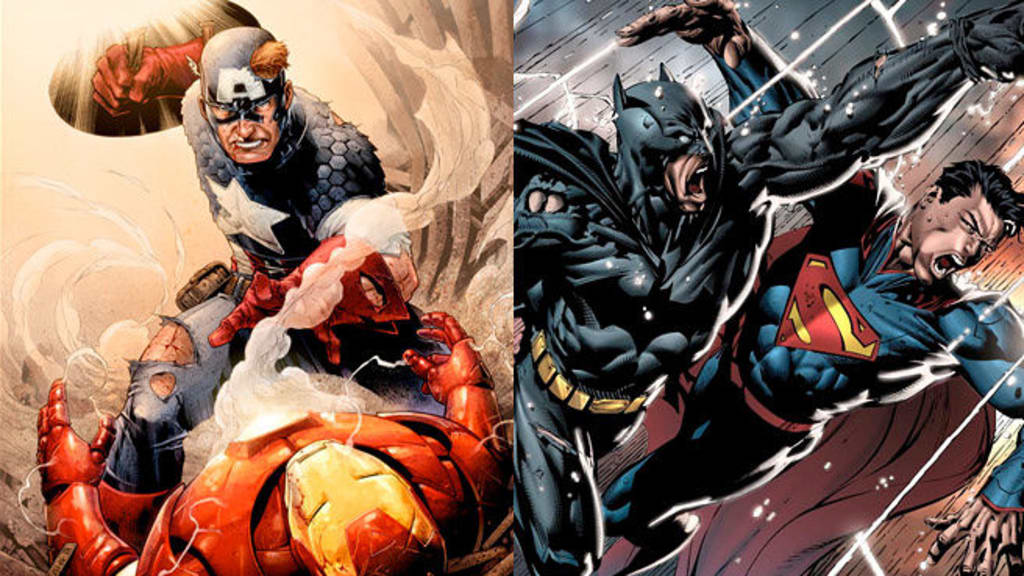
This is the year when superheroes go head-to-head! DC gave us an epic confrontation between the Caped Crusader and the Man of Steel, and Marvel followed up with a battle that tore the Avengers apart. But how do these two movies compare? I'll focus in on jut a few key factors: themes and symbolism, characterization, new character introductions, and the villains! But first, here's some groundwork...
WARNING: SPOILERS FOLLOW!
Where do these films sit in their Cinematic Universes?
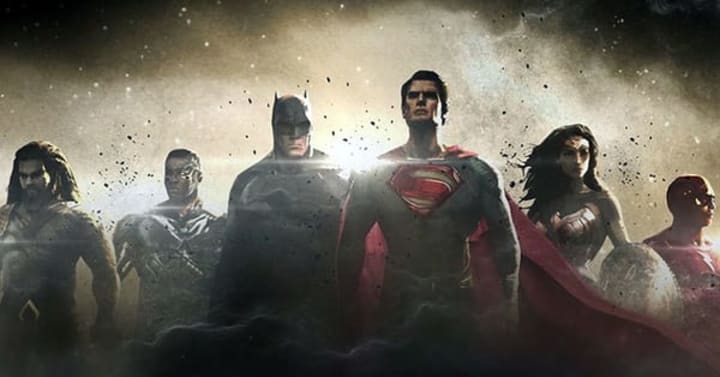
We'll soon see the Justice League!
Born from 2008's Iron Man, the MCU has now reached Phase 3 - and Marvel are choosing to deliberately deconstruct the world they've created. In contrast, DC have been working to get their own DCEU off the ground since 2011's Green Lantern; that box office failure led them to reconsider, making Man of Steel the inaugural film of the DCEU.
Civil War launches Phase 3, with a through-line to Avengers: Infinity War; BvS must be a sequel to Man of Steel, while setting up everything DC is planning to do.
These two films have a lot of similarities, but they do deal with two very different cinematic worlds.
Themes and Symbolism
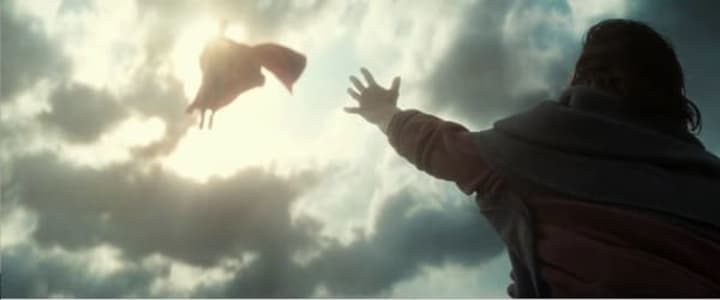
Superman to the rescue!
There are powerful thematic similarities between BvS and Civil War. Both films focus in on the theme of consequences. Man of Steel was criticized for the sheer amount of damage caused by Superman's battle with Zod, with huge tracts of Metropolis destroyed. BvS picks up from that, recognizing that Superman has become a controversial figure due to the chaos he left in his wake. Batman's motivation for pursuing Superman is the destruction of a Wayne Enterprises building in Metropolis — the opening sequences show that Bruce Wayne was on-hand for the final battle between Superman and Zod, and the imagery is reminiscent of 9/11.
For Civil War, the entire film orbits around the themes of consequences and vengeance. The destruction caused by the Avengers — in New York, Washington DC, Sokovia, and Lagos — have led to the government pushing for political oversight of the world's superheroes. Meanwhile, the villains of the film — Crossbones and Zemo — are both consequences of the Avengers' actions. Crossbones's hatred of the Avengers is a desire for payback because they "dropped a building" on him in Captain America: The Winter Soldier, while Zemo's backstory ties him to the devastation in Sokovia from Avengers: Age of Ultron.
Oddly enough, for Civil War the theme of consequences plays second fiddle to the theme of revenge. Crossbones and Zemo both desire revenge for what the Avengers have cost them; the Black Panther seeks revenge for the death of his father; and, ultimately, Tony Stark wants to kill the man who murdered his parents — brainwashing be damned. It's a nice touch, tying all the film's antagonists together, and ensuring thematic consistency throughout the film.
Where BvS stands heads-and-shoulders above Civil War, though, is in the depth of symbolism it employs. The Messianic imagery alone is phenomenal, with the film taking full advantage of its Good Friday release date. Unfortunately, while BvS rejoices in its symbolism, it is quite heavy-handed about it. I particularly find Lex Luthor's role irritating; he continually lampshades the Messianic imagery, as though the film isn't quite confident viewers will 'get' it. Strangely, more subtle imagery goes uncommented on, giving an out-of-kilter feel to the symbolism that really damages its effectiveness.
The winner in themes and symbolism? Captain America: Civil War!
Characterization
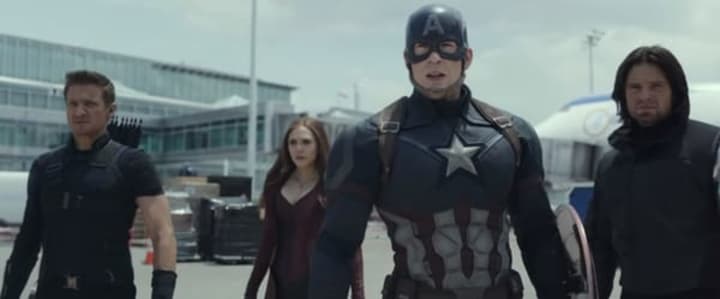
So... many... Avengers!
Both BvS and Civil War have a massive cast. BvS introduces us to a new, darker iteration of Batman, excellently portrayed by Ben Affleck. This Batman has seen his powerlessness in this new world of gods walking among men, and that powerlessness has turned him cruel. He's become a killer in a way that would make Frank Castle proud! By the end of the film, Superman's example has begun to set him on a different path.
It's a tremendous character arc, but it has one fatal problem: The majority of that arc is only made clear because of one single piece of dialogue, conveyed by Jeremy Irons's Alfred. Alfred's dialogue makes clear that Batman's violence is new, and he explicitly calls out the reason for it. I find that deeply unsatisfactory. A character arc should be visible within the film itself, not just explained by another member of the cast. As the old saying goes: 'show, not tell', let us see the arc rather than have it told to us. Better yet, take us through the arc along with the character, as fellow travellers on the journey.
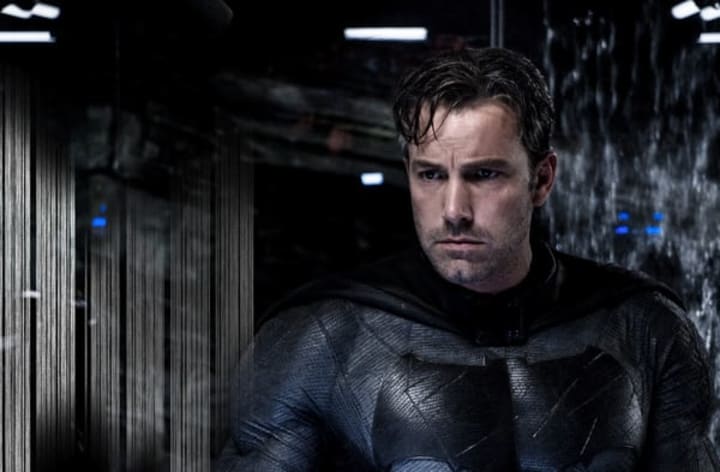
Ben Affleck - a true Dark Knight!
Superman, meanwhile, has a much more effective character arc. Neatly aligning to the Messianic imagery, Superman must decide whether to step back from the world or involve himself in it — with inevitable consequences, as Luthor unleashes Doomsday. This arc exploits the film's central imagery, adding a massive amount of depth to Superman's character. Although some fans are unimpressed by this interpretation of Superman, I personally feel that it works rather well.
In general, secondary characters — whether they be Amy Adam's Lois Lane or even Gal Gadot's Wonder Woman — don't have character arcs. Gal Gadot is tremendous as Wonder Woman, but she's simply there, and doesn't really change and grow as a character per se. I loved her appearance, but this film didn't do much more than skim the surface of Wonder Woman. I'm eager to see a lot more of her.
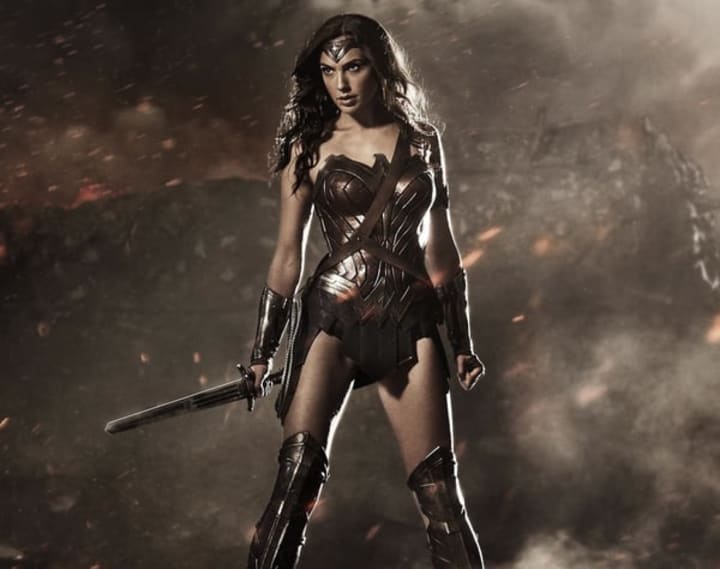
Gal Gadot's Wonder Woman - TREMENDOUS!
Contrast this with Civil War. The main characters are Captain America and Iron Man; both have strong character arcs. Steve Rogers actually comes close to signing the Sokovia Accords — if not for a single unwise decision on Iron Man's part, the whole Civil War would have been averted! Iron Man, meanwhile, has perhaps the most intriguing arc in the whole film. His frustration is visible, and escalating, but he's actually willing to change his mind when he realizes he's been manipulated. Unfortunately, Zemo knows which buttons to press.
Where Civil War excels is in its handling of secondary characters. Sure, some secondary characters are just there, in the way Wonder Woman is in BvS. Falcon is basically Captain America's sidekick, and while Ant-Man has some outstanding scenes, he doesn't really develop as a character. But lots of other cast members have distinctive arcs — Scarlet Witch, Vision, Black Widow, Black Panther — all of these actually grow and develop as the film's narrative rolls on. It's very surprising to see so many character arcs handled so effectively.
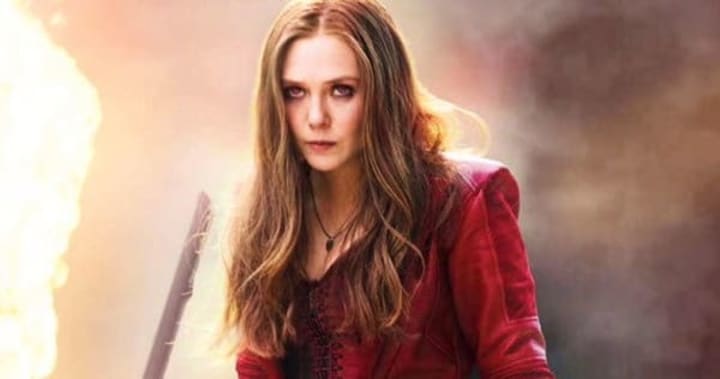
The Scarlet Witch's arc is brilliant.
Both films begin with the death of a character's parents, and in both cases it's a scene with an impact reverberating throughout the film. For BvS, we see Snyder's beautiful reinterpretation of the death of the Waynes; the scattered pearls are like shed blood, more evocative than any R-rated scene could ever be. It's a movie as art. For Civil War, we see Tony Stark reliving the last conversation he had with his parents in holographic form, wishing it could have gone differently. There's no symbolism, just a real emotional weight. Those two scenes are an effective contrast between the films, one with a focus on visual artistry and symbolism, the other with a focus on character motivations and growth.
The winner in characterization? Captain America: Civil War!
New Character Introductions
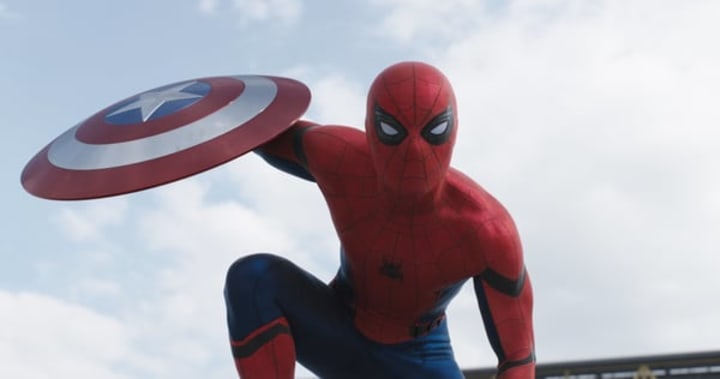
On the roof!
BvS had to make a lot of introductions, setting up the members of the Justice League film. Most only get a nod, but the one of real importance is Gal Gadot's Wonder Woman.
Wonder Woman plays a brilliant role in the film. I love the back-and-forth between her and Bruce Wayne, as both infiltrate LexCorp to discover Luthor's secrets. When she finally enters the battle, she's a dynamic presence with a visceral love of combat. Wonder Woman is, quite simply, a warrior born. She steals every scene she's in, dominating that final battle with Doomsday!
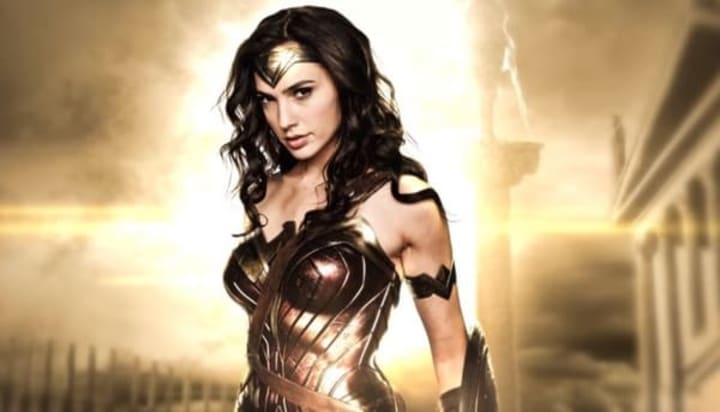
I'm looking forward to Wonder Woman!
Civil War, meanwhile, must make two major introductions. We meet Tom Holland's new Spider-Man, brilliantly characterized as a fifteen-year-old kid who's out of his depth. We're introduced to him as Peter Parker, ensuring we're comfortable with this latest iteration of the comic book icon, and only later see him in action. His critical role in the airport battle makes him hugely enjoyable, although as a character he's not particularly strong. He really doesn't have a character arc to speak of, which is a shame.
Black Panther is handled far more effectively. Chadwick Boseman's Black Panther is an highlight of the film, with a character arc tying in neatly to Civil War's main themes. He complicates the plot in a fascinating way, and plays off well against other key members of the cast. It's a great introduction.
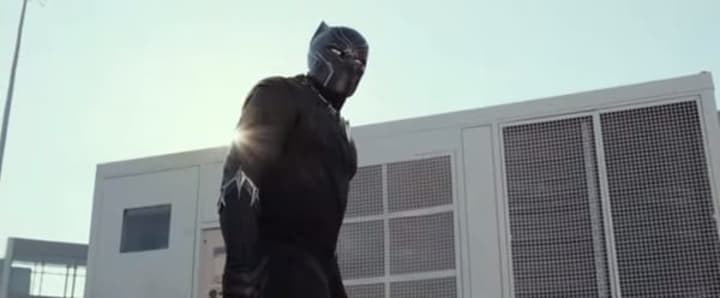
The Black Panther is a major character.
I'm torn on this particular aspect of the films. Gal Gadot's Wonder Woman may not have been developed as a character in BvS, but she really is such a presence that I can't dismiss her importance. Tom Holland's Spider-Man is tremendous fun, while Chadwick Boseman is brilliantly rendered as the Black Panther.
Which film comes out top in introducing new characters? It's a tie!
Villains
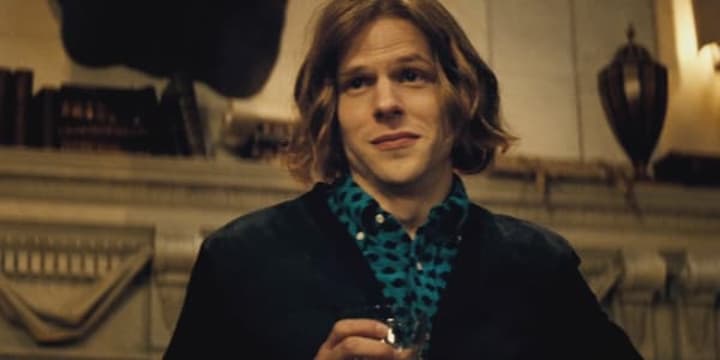
A Lex Luthor for a new age!
Both films have two villains. In BvS, we have Lex Luthor, portrayed by Jesse Eisenberg. Eisenberg's Luthor is a dramatic reinterpretation of the character, and many fans have tried to argue he's actually Lex Luthor's son! The fact this approach has to be taken suggests just how dramatic a shift this version of Luthor is. Luthor's plot is convoluted and, at times, inexplicable. I'm not entirely sure what he thought would happen after Doomsday had killed Superman. It's just odd.
Doomsday, of course, is a brutal and bestial threat. No character, Doomsday is a rampaging beast driven by a desire to cause destruction. The CGI is impressive, and visually he improves from the Teenage Mutant Ninja Turtles look we saw in the trailer. He's really there as a catalyst to get the superheroes to work together and as a threat so real Superman can die stopping him. It seems odd putting The Death of Superman plot into the DCEU so early on.
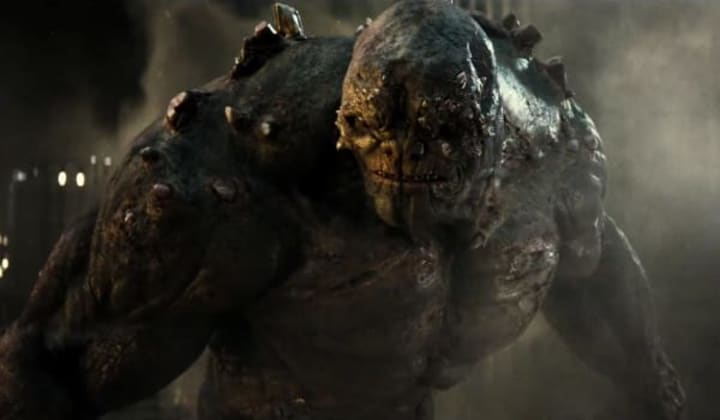
Doomsday does get better!
Unfortunately, Civil War isn't great with its villains either. Frank Grillo's Crossbones is underused, killed early in the film. Daniel Brühl's Zemo is more ZINO — Zemo In Name Only, a completely different character bearing the name of the supervillain. It's annoying, because the reality is that the Zemo of Civil War is tremendously done, but he could have carried any other name without it changing the plot in the slightest. What's more, Zemo's plan relies on far too many coincidences for my liking. That's particularly the case in the film's climax, where Zemo had little way of knowing Iron Man would follow Captain America.
Both BvS and Civil War see the villains more as plot devices. Luthor forces Batman and Superman to fight, before providing an enemy who must unite them. Zemo encourages the divide between the Avengers, manipulating events to tear them apart. Smart writing ties Zemo's motivations to Civil War's central themes, but achieves this by sacrificing any semblance of the Zemo we read in the comics.
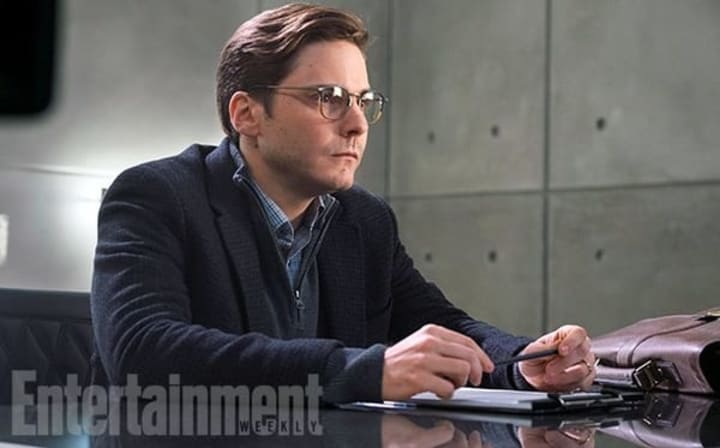
Zemo is still a dangerous man!
Neither film performs well in their handling of the villains.
The winner in the villains? It's a tie!
Ultimately, in these criteria I do think Civil War performs better than Batman v Superman. I don't view Batman v Superman as a bad film by any stretch of the imagination — it's beautifully artistic, and I enjoyed watching it. But Civil War is far stronger in terms of character work, and has a consistency of theme that's admirable. Whatever your views on the two films, with the DCEU finally a reality and Phase 3 of the MCU launched, comic book fans are in for an exciting ride!
About the Creator
Tom Bacon
A prolific writer and film fan, Tom has a deep love of the superhero genre.






Comments
There are no comments for this story
Be the first to respond and start the conversation.